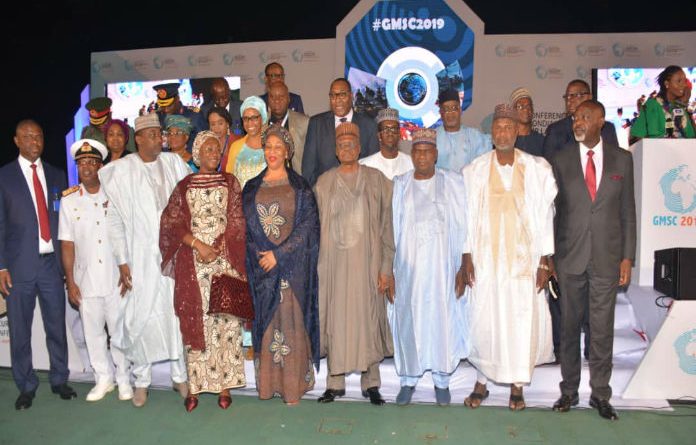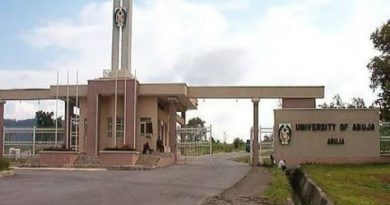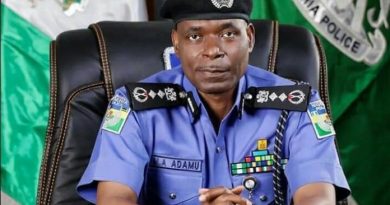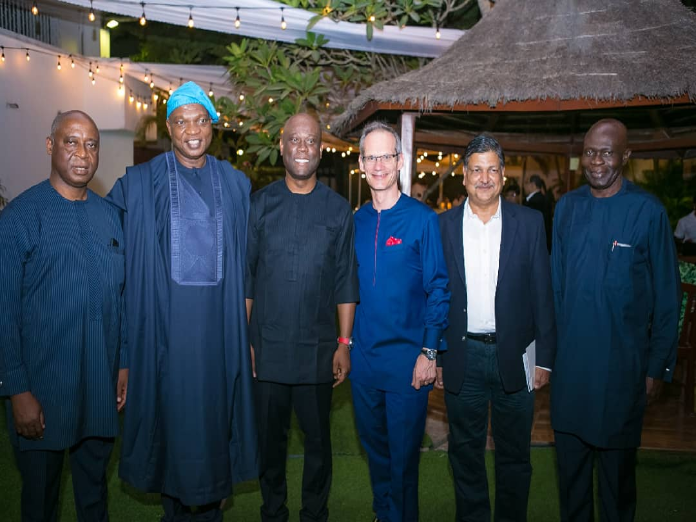Maritime Security: FGN, Other Stakeholders In Tune with Security Challenges in Gulf Of Guinea
Oru Leonard
The Stakeholders in Maritime security converged on Monday, October 7, 2019 at Abuja in Nigeria, for the Global Maritime Security Conference (CMSC), with the theme: “Managing and Securing our waters”, a three-day conference to evaluate, brainstorm and proffer solutions to rising surge of insecurity and related crimes in the marine sector, especially in the Gulf of Guinea.
President Muhammadu Buhari, at the conference said that to ensure Maritime security, there is need for collective efforts from all stakeholders represented at the conference.
“I reiterate the need for a joint effort because security in the Gulf of Guinea is vital and central to global trade in view of the fact that many critical trade routes connecting the continent to the rest of the world, run through the Gulf,” he said.
Maritime Offences Act
President Buhari explained that Nigeria has put in place a Suppression of Piracy and other Maritime Offences Act, which was signed into law on the 24th of June 2019 to give credence to the relevant international treaties of the United Nations and International Maritime Organisation.
The Nigerian President said his administration has integrated National Surveillance and Waterways Protection Solution, with Command and Control Infrastructure put in place, and the Nigerian Navy has also stepped up efforts in collaborating with other maritime security agencies aimed at achieving a safe and secured maritime domain.
President Buhari added that ”presently we are working on a Maritime Transport Plan, and Strategy, which when completed will provide a robust enabling framework for achieving Nigerian Maritime Objectives.”
According to the Minister of Transportation, Rt Honourable Chibuike Amaechi, the conference is expected to be a pathfinder to the insecurity problems on the nations territorial waters. He said that the conference is organised to examine and address the issues of maritime security on the Gulf of Guinea region.
“This has become more important now that there is a significant global concern on the rising spate of maritime insecurity and the perception that the Gulf of Guinea Region accounts for most of these cases.
“It is for this reason that Nigeria has decided to take the lead on behalf of the Gulf of Guinea states in convening this Conference to examine the strategies and coordinated responses in place to address maritime insecurity” Amaechi stated.
He noted that whilst there have been several endeavors to address the broad array of real and potential threats in the Gulf of Guinea over time, the approach this time is to appraise the relevance and impacts of the various interventions initiated already to tackle maritime insecurity, and that has put in place detailed legislation in the form of a Suppression of Piracy and Other Maritime Offenses Act to tackle and repress piracy and other maritime crimes in the Nigerian maritime domain.
He revealed that an integrated maritime security architecture has been designed with a command and control centre for effective policing of the Nigerian waters. The initiative encompasses three main components: A C4-I Intelligence system to enhance domain awareness; acquisition of land, air and marine for patrols, quick response and interdiction; and
the retraining and capacity building of military response teams to effectively respond to threats and incidents.
Speaking, The Minister of State, Transportation, Ms Saraki Gbegbisola, said the conference would create a platform to look at strategies and coordinate responses in place to address the broad array of real and potential threats in the Gulf of Guinea over time.
“our prosperity as nation-states today has an inextricable linkage to maritime security considering that over 90% of world international trade is by sea. Thus striving to maintain safe, secure shipping in our seas and oceans is not negotiable”, she said.
She reaffirmed her believe that the outcome of the conference would foster better cooperation in addressing the challenges of maritime security in the Gulf of Guinea for the overall benefit of member states and the world at large.
In his remark, The Chief of Naval Staff Vice-Admiral Ibok Ete Ibas said that consistent finding over the past four years impacted positively on Navy’s surveillance and Maritime domain awareness infrastructure .
The Naval Chief expressed joy at another opportunity to discuss collaborative efforts saying that ” recent efforts by Nigeria in concert with its neighbours and partner nations have proven useful in containing the associated threats”.
Addressing journalists at the Conference, Dakuku reiterated President Muhammadu Buhari’s statement that Nigeria is committed to play a leadership role in addressing the challenges of Maritime security in the Gulf of Guinea, as Nigeria’s economic prosperity is tied to the seas and oceans.
He further noted that collaboration and partnership is needed to tackle the challenge of Maritime insecurity in the Gulf of Guinea.
“Inter-agency collaboration and partnership, inter-regional collaboration and inter-continental collaboration and partnership as well as global collaboration and partnership, to me this is the key message,” he said.
He also said that without safety and security of the waterways, there won’t be Maritime transportation as sea-borne transportation flourishes where the waterways are safe and secure.
“A key component of maximizing the opportunities inherent in Maritime Transportation is addressing the issues of security and safety.
“The challenge of insecurity in our waterways is no longer tolerable and we must deal with it from the root. We are being proactive and will not accept any form of threat to our Maritime domain, particularly the use of our waterways for shipping and economic activities,” he concluded.




